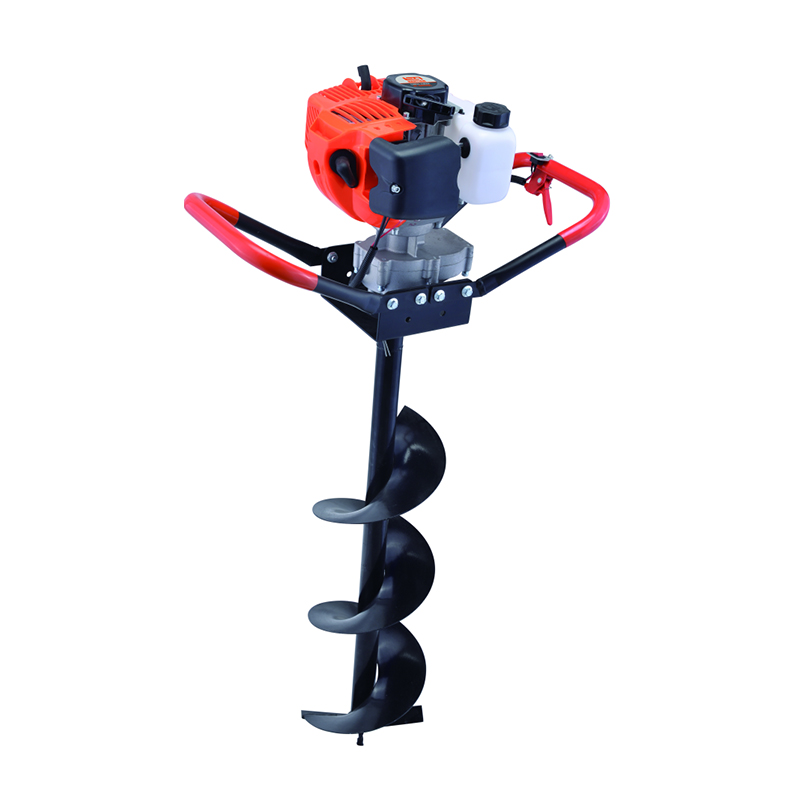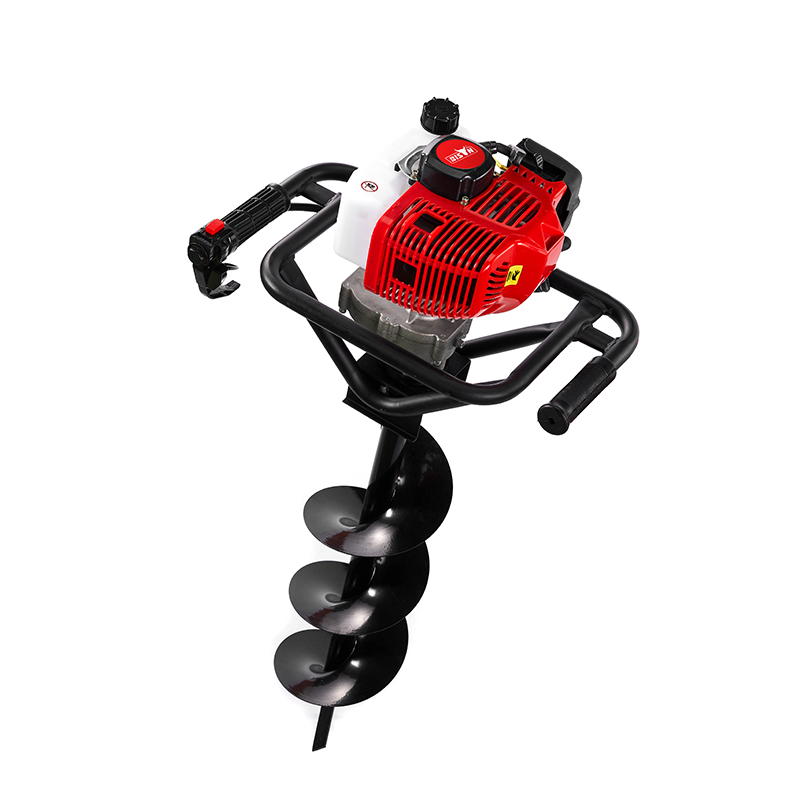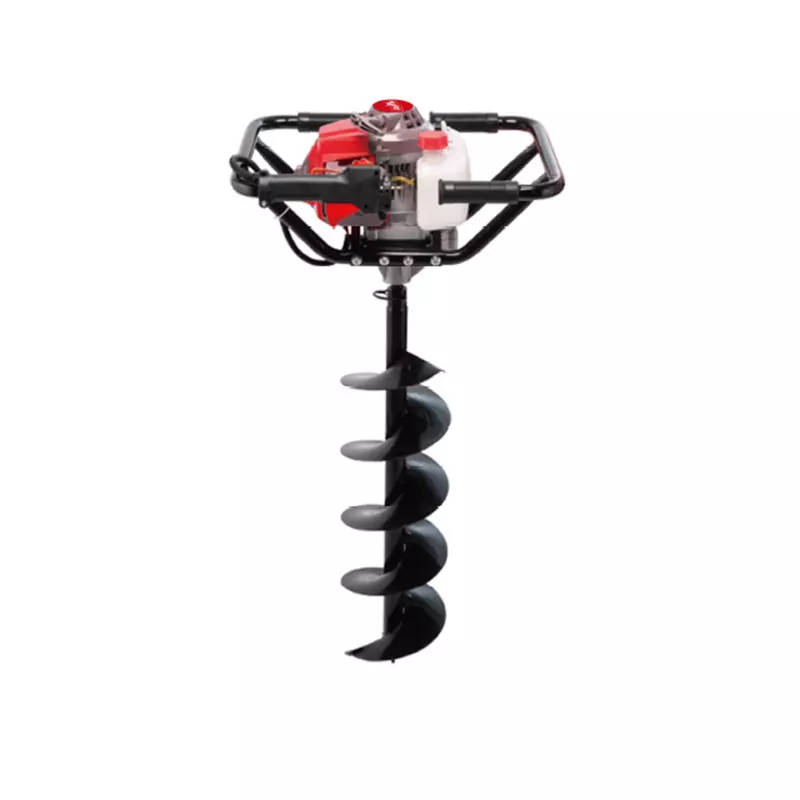How to choose an earth auger bit?
2023-09-01
Table of content
Digging holes for a variety of purposes, whether it's for fencing or planting trees, can be a physically demanding and time-consuming task. Fortunately, with the right tool in hand, this process can be significantly speeded up. This is where earth augers come into play. However, the effectiveness of an earth auger depends considerably on what you choose to pair with it.
BISON examines the critical factors to consider when choosing the perfect earth auger bit for your specific needs. Whether you're a DIY enthusiast or a professional earth auger dealers, understanding these essential aspects will help you to make an informed decision and get the best results with your earth auger.

What is an earth auger bit?
Earth auger bits are commonly used for drilling operations. Choosing the right auger bit for the type of material you're drilling is essential (more on that later). Still, broadly, all auger bits perform the same function: accurate drilling, digging and excavation.
Earth auger bits are great for outdoor projects involving gardening and construction. Whether you need to build a fence, gazebo, deck, or other structure, you can use an auger to drill holes in the ground. The bit cuts through the mud and guides it out of the hole. This is an easy way to stabilize a base, pole or beam.
Choosing the right auger bit for grounding
Matching the auger bit and blade to soil and project digging can eliminate premature wear while reducing maintenance and increasing satisfaction.
Unlike many manufacturers that only make one auger, BISON offers a variety of augers, auger bits and blades designed to optimize cutting in any soil for any project.
What are the different types of earth auger bits?
There are several types of earth auger bits, each designed for a specific type of soil or task. Remember, the type of earth auger bit you choose should depend on your specific project needs and the soil conditions in your area. Here are some of the common types:
Standard auger bits: Standard augers are best for most projects and are best in soft soils. They can also drill holes in clay, frozen ground and hardpan soil.
Carbide-Tipped auger bits: These bits are designed for tough conditions. The carbide tips are extremely hard and durable, making them ideal for rocky or hard-packed soils.
Rock auger bits: As the name suggests, these are designed specifically for drilling through rock. These augers are equipped with more durable teeth, side-cutting blades, and heavy-duty flight.
Tree planting auger bits: These bits have a wider diameter to accommodate the root ball of a tree. They're ideal for planting trees and large shrubs.
Soil sampling auger bits: These are used for obtaining soil samples for testing. They're typically smaller in diameter and may have a hollow center to collect the soil sample.
Nursery auger bits: These are larger bits used for digging holes for planting in nurseries. They can handle a wide range of soil types.
Diameter and depth
Auger bits come in a variety of diameters and depths, depending on their intended use. BISON offers 7 different diameter augers ranging from 1.5" for soil sampling to large 16" nursery augers.
For example, installing a 4x4 post (3.5" x 3.5" actual size) with a maximum width of just over 5" (diagonally) requires an auger bit capable of drilling a hole of that size.
Typically, augers are available in depths of 3 feet and 4 feet, but there are some augers that allow you to drill holes to greater widths and depths. For example, there is an extra-large earth auger that can dig holes up to 26 inches deep, 9 inches wide, and 28 inches long.
In conclusion, the diameter and depth of an earth drill blade can vary greatly depending on its specific application. As the diameter increases, more power is required from the earth auger. Setting up a drill that has gear reduction will result in more efficient drilling when using larger diameter augers.
Points and blades
Six different blade options are available in BISON to meet any drilling requirement. Standard blades and points are ideally suited for areas with clay or a few rocks. They are made with cold rolled steel and hard surfacing on their edges.
Carbide blades are more effective for drilling in hard clay or frozen ground. Heavy-duty augers are specially designed with heavy-duty steel and carbide tips and blades for abrasive soil and compacted rock.
Simple components
Snap-on augers and extensions use a convenient spring-loaded snap button, allowing users to quickly change augers without needing tools.
Most points and blades are attached to the auger with two steel bolts that can be easily removed. Points and blades can easily dig over 100 holes before needing maintenance. Reversible blades are also available in the market. They can be flipped for a fresher edge to last twice as long as regular blades.
People also ask about choosing earth auger bits
How big of an auger bit do I need?
The size of the auger bit you need depends on the size of the hole you need to drill. Here are some general guidelines:
For fence posts: If you're setting fence posts, you'll typically need an auger bit that's at least 2 inches wider than the diameter of your posts. For example, if you're using 4-inch posts, you'd want to use a 6-inch auger bit.
For planting trees or shrubs: The hole for a tree or shrub should be two to three times wider than the root ball or container. Therefore, if your tree has a root ball that's 12 inches in diameter, you'll need an auger bit that's 24 to 36 inches wide.
For soil sampling: Soil sampling usually requires smaller holes, so a 1 or 2-inch auger bit should suffice.
Remember, these are just guidelines, and the specific requirements can vary based on your project. Always consider your project's specific needs when choosing an auger bit size.

Choose BISON auger bits
Choosing the ideal earth auger bit involves more than just picking a random option off the shelf. You can choose the right type of earth auger bit by considering soil type, hole depth, and specific project needs. Remember that a well-chosen earth auger bit can save you time, energy and resources in the long run.
As a professional earth auger factory, BISON provides a variety of high-quality auger bits. Our products are designed to meet different project needs and work effectively in a variety of soil conditions. We make sure our auger bits are made of durable materials for long-lasting performance.
Our team of experts is ready to guide you in choosing the perfect auger bit for your specific project. Choose BISON for reliable, efficient and durable auger bits



